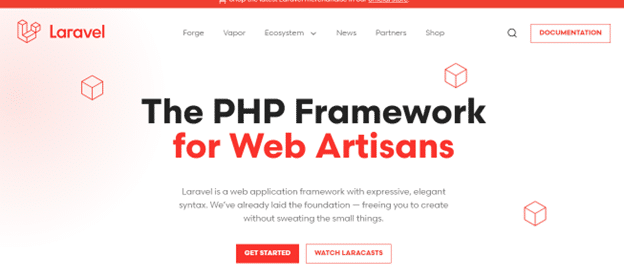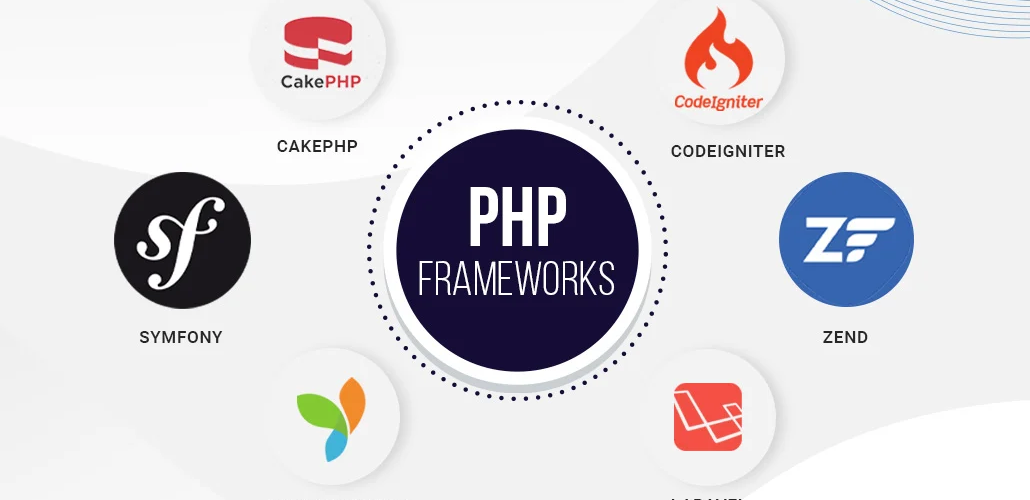PHP Frameworks Explored : Frameworks Compared
The PHP landscape offers a dizzying array of tools for building websites and web applications. For developers, navigating this choice can be perplexing. Today, we’ll dive into four prominent options: Laravel, WordPress, CakePHP, and Symphony, examining their strengths, weaknesses, and ideal use cases.
PHP Frameworks Explored : Laravel
Laravel shines as a full-fledged MVC framework geared towards complex, custom web applications. Its elegant syntax, built-in features like authentication and routing, and robust community make it a developer’s delight. However, the learning curve can be steeper, and it isn’t the best choice for simple content-driven websites.

PHP Frameworks Explored : WordPress
This ubiquitous content management system (CMS) reigns supreme for managing websites with blog-like functionalities. Its user-friendly interface, vast plugin ecosystem, and readily available themes make it accessible even to non-developers. But, customization beyond WordPress’ core capabilities requires theme and plugin modifications, and its architecture isn’t ideal for intricate web applications.
PHP Frameworks Explored : CakePHP
Striking a balance between power and simplicity, CakePHP is a rapid development framework favoring convention over configuration. Its clean code base, built-in features like forms and database access, and MVC architecture offer a productive platform for building mid-sized web applications. However, its community isn’t as extensive as Laravel’s, and advanced customization might require deeper PHP knowledge.
PHP Frameworks Explored : Symphony
Composed of a collection of reusable components, Symphony offers a modular approach to web development. This flexibility grants developers fine-grained control over every aspect of their application. However, Symphony’s modularity also translates to a steeper learning curve and requires more upfront configuration compared to other options.

Choosing Your Ally:
- For complex, custom web applications: Laravel.
- For managing content-driven websites: WordPress.
- For rapid development of mid-sized web applications: CakePHP.
- For fine-grained control and maximum flexibility: Symphony.
Remember: The “best” tool depends on your specific needs and skillset. Don’t hesitate to explore further and evaluate each option based on your project’s requirements.
Mastering Mondays: A Manager’s Guide to Kickstarting a Productive Web Dev Week





Leave A Comment